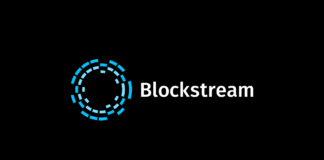In a strategic move to revolutionize its financial landscape, the Bank of Israel is forging ahead with the development of its central bank digital currency (CBDC), the digital shekel. Recognizing the transformative potential of this innovative payment solution, the Bank of Israel (BoI) has launched the ‘Digital Shekel Challenge,’ a collaborative initiative that aims to harness the expertise of private, public, and academic sectors to create a cutting-edge digital payments ecosystem centered around the digital shekel and driving financial innovation in the digital economy.
The Digital Shekel Challenge: Fostering Innovation
The Digital Shekel Challenge is a multifaceted experiment inspired by the Bank for International Settlements (BIS) Innovation Hub’s ‘Project Rosalind,’ which explored the application programming interface (API) functionalities needed to support a retail CBDC and facilitate secure payments. As part of this challenge, the BoI will provide a sandbox environment and API layer, inviting a diverse array of participants to compete in building real-time CBDC payment systems for public use, thereby enhancing the payment ecosystem with innovative fintech solutions.
Collaborative Approach
The BoI has emphasized the collaborative nature of this initiative, recognizing the importance of engaging with various stakeholders in the financial industry, both from Israel and abroad. Andrew Abir, the Deputy Governor of the BoI, highlighted the significance of this challenge, stating, ‘In the challenge, for the first time, we allow the financial industry from Israel and abroad and a wide variety of stakeholders in the payments system to cooperate with us in a practical way in thinking, planning and designing the digital shekel.’ This initiative underscores the Bank of Israel’s commitment to enhancing the payment infrastructure and involving financial service providers and the public sector.
Prioritizing Innovation
The BoI has set clear priorities for the Digital Shekel Challenge, focusing on applications with ‘original and innovative characteristics in the payments world, whether they are improvements to existing applications or completely new applications.’ This openness to both incremental enhancements and groundbreaking solutions underscores the central bank’s commitment to fostering a dynamic and adaptable digital payments ecosystem, promoting advanced payment options and innovative payments ecosystem.
The Challenge’s Three-Phase Structure
The Digital Shekel Challenge will unfold in three distinct phases:
- Application and Presentations: Participants will submit their proposals and present their ideas to the BoI.
- Access to the NetworkSelected projects will be granted access to the BoI’s new network, allowing them to further develop and refine their CBDC payment solutions, driving technological development in the fintech sector.
- Final PresentationThe finalists will present their work to a panel of judges, some of whom have been featured at prominent crypto events, highlighting the growing trend of crypto adoption.
This structured approach ensures a comprehensive evaluation process, enabling the BoI to identify the most promising and innovative solutions that can contribute to the digital shekel’s success within a robust regulatory framework.
Bridging the Gap between Web3 and Government
The Digital Shekel Challenge represents a significant step in bridging the gap between the Web3 industry and government initiatives. Saul Rejwan, the Managing Partner at Masterkey Venture Capital, a Tel Aviv-based venture capital firm, highlighted the potential of this challenge to foster collaboration between these two spheres, even though some advanced technological solutions, such as decentralized finance (DeFi), zero-knowledge (ZK) proofs, and permissionless systems, are not yet being considered. This initiative underscores the importance of blockchain technology and permissionless solutions in government efforts.
Prototype Development and Collaborative Partnerships
Alongside the Digital Shekel Challenge, the BoI has been actively working on the development of a technological prototype that simulates the core of the digital shekel system. This prototype will serve as a foundation for payment service providers to access the system and offer advanced payment solutions to the general public, facilitating seamless digital transactions within the payment array.
Furthermore, the BoI has engaged in collaborative efforts with other central banks and institutions to explore the digital shekel’s potential. For instance, the bank partnered with the Hong Kong Monetary Authority and the BIS on Project Sela, successfully testing a retail CBDC that balanced user accessibility, competition, cybersecurity, and the benefits of cash, thereby contributing to a nuanced approach to monetary policy and exploring innovative split payments solutions.
Public Consultation and Feedback
The BoI’s journey towards the digital shekel has been marked by a commitment to public engagement and transparency. In 2021, the central bank conducted a survey to gauge public sentiment regarding its digital currency research. The responses indicated widespread support for the BoI’s continued exploration of the digital shekel, though concerns were also raised about potential privacy breaches amidst this digital transformation and shift towards electronic payments.
Addressing Privacy Concerns
Recognizing the importance of privacy in the digital currency landscape, the BoI has stated that the digital shekel will provide at least the same level of privacy protection as existing digital payment methods, and potentially even higher standards if implemented effectively. This commitment to safeguarding user privacy is a crucial aspect of the BoI’s approach to the digital shekel’s development, particularly in the context of digital wallets and peer-to-peer payments.
The Digital Shekel’s Potential Impact on the Banking Sector
The introduction of the digital shekel is expected to have a significant impact on the banking sector in Israel. BoI Deputy Governor Andrew Abir believes that the CBDC’s competition with commercial banks could be economically beneficial, as it may incentivize banks to offer higher interest rates on deposits to retain customers, thereby positively influencing the Israeli economy.
Moreover, Abir emphasized the transparency of the digital shekel’s development, stating that it will be overseen by the BoI, rather than being created anonymously like some cryptocurrencies. This transparency is intended to foster public trust and acceptance of the digital shekel as a legitimate and reliable virtual currency.
Monitoring Stablecoin Adoption and Cybersecurity Threats
Alongside its efforts to develop the digital shekel, the BoI has been closely monitoring the adoption of stablecoins and the potential risks they pose to the financial system. In 2021, the central bank conducted various tests and scenarios to assess the impact of widespread stablecoin usage, considering their role as digital assets within a distributed ledger framework.
Additionally, the BoI’s collaborations with entities like the Hong Kong Monetary Authority and the BIS have focused on safeguarding the digital shekel and related payment systems from cyber threats. This proactive approach to cybersecurity underscores the BoI’s commitment to ensuring the resilience and integrity of the digital shekel ecosystem and its payment infrastructure.
The Digital Shekel’s Potential Benefits
The BoI’s pursuit of the digital shekel is driven by the potential benefits it can bring to the Israeli financial landscape. By creating a more efficient and accessible payment system, the digital shekel is expected to enhance financial inclusion, reduce transaction costs, and streamline cross-border payments, thus promoting cashless payments and reducing cash usage.
Furthermore, the BoI believes that the digital shekel could incentivize banks to offer higher interest rates on deposits, potentially leading to increased competition and better outcomes for consumers, aligning with broader monetary policy goals.
Ongoing Research and Decision-Making Process
Despite the BoI’s significant progress in exploring the digital shekel, the central bank has not yet made a final decision on its issuance. The bank has been conducting extensive research and testing, including the development of a technological prototype and participation in collaborative projects, to thoroughly evaluate the feasibility and implications of a CBDC and its various use cases.
The Digital Shekel Challenge represents a crucial step in this decision-making process, as it allows the BoI to gather valuable insights and feedback from a diverse range of stakeholders. The challenge’s results and the ongoing research will inform the BoI’s ultimate decision on whether to proceed with the digital shekel’s issuance, leveraging insights from academic innovation labs.
Conclusion: Shaping the Future of Payments in Israel
Israel’s Digital Shekel Challenge is a bold and forward-thinking initiative that underscores the country’s commitment to embracing the transformative potential of digital currencies. By fostering collaboration, prioritizing innovation, and addressing key concerns, the BoI is positioning Israel at the forefront of the CBDC revolution, showcasing its innovative digital payments solutions.
As the Digital Shekel Challenge unfolds and the BoI continues its comprehensive research, the future of payments in Israel is poised to undergo a profound transformation. This groundbreaking endeavor has the potential to redefine the financial landscape, enhance financial inclusion, and solidify Israel’s reputation as a global leader in the digital economy through financial innovation.
Table of Contents
Disclaimer: The information contained in this article is for informational purposes only. It should not be considered as financial or investment advice. The reader should do their own research before making any financial decisions based on the information provided above. Hash Herald is not responsible for any losses in market.













